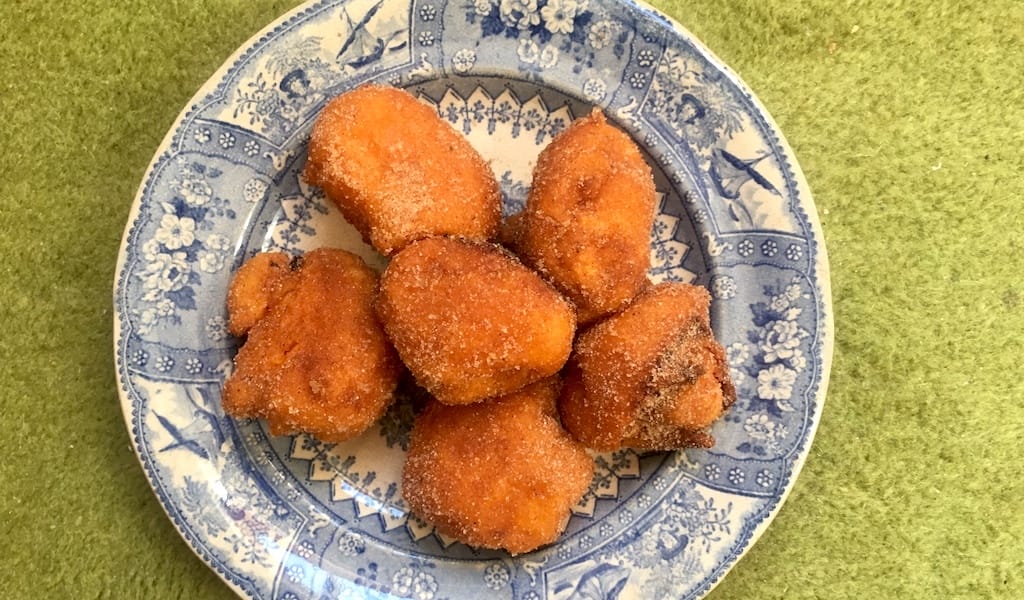Editor’s note: We regret to report that La Biblioteca Gourmande has closed.
In the heart of El Raval, one of Barcelona’s most multicultural neighborhoods, lies a portal to the Catalan countryside. At La Biblioteca, which opened in 2012, the origins of the ingredients sing out clearly from each dish and plunge you into a pure culinary experience inspired by the land: the traditional farmhouses called masias, the rustic recipes of the Pyrenees, the perfume of the valleys and gardens, the modern farmers near the city and the influence on plants and herbs of the Mediterranean Sea.
“I love this territory, and I wander around a lot, visiting producers and farmers; I spend a lot of time talking with them,” says chef-owner Guillem Oliva. “And the same communication I have with the producers, I also have with the products. I touch a tomato, a duck or a sprig of mint and it tells me what it needs. It is like my relationship with my daughters; I observe them and they teach me how to be a father. In the same way, the ingredients teach me how to be a chef. They give meaning to my work, and there is always a story behind the dish the customer is eating.”

The ingredients, all organic or natural and sourced from small local producers, are carefully identified on the menu or by the maître d’ when she introduces the dishes. Those dishes read like a map of the region: duck comes from Berguedà, tender onions from Vic, vegetables from El Vallès, rice from Pals. Particularly notable is the free-range Wagyu beef, which comes from cattle raised at the masia Can Mabres, in Esparraguera, a village in Barcelona province. Oliva uses the beef in a number of dishes, such as the “Tartar Biblioteca,” a generous portion of Wagyu simply adorned with aromatic herbs, or the “Humble Rossini,” chopped veal with foie gras.
And then there are Enric Alaball’s special herbs and plants, which turn up in most of the dishes. Alaball’s garden lies close to the sea, which imparts a natural salinity to his produce, from the common watercress, chives, dill, mint or figs to the more unusual sea beans and ficoïde glaciale, two intensely juicy and briny succulents.

Such devotion to ingredients means that Oliva’s cooking follows the seasons closely, and to provide the fullest picture of the seasonal bounty, he offers a special tasting menu. This summer, we sampled an uncomplicated yet intensely flavorful salad of heirloom tomatoes from Canet sprinkled with fragrant mint and basil leaves. Those onions from Vic were roasted until meltingly juicy and soft and combined with mató (a Catalan cottage cheese), pine nuts and honey, the dish’s earthiness enhanced by the aromas of peppers, chives and a touch of fennel. We also tasted a specialty of the Pyrenees, inspired by something Oliva tasted long ago, in a house in the mountains: cabbage cannelloni. His version was filled with chicken and subtly perfumed with dill, chervil and mint and dressed with a bracing vinaigrette reduction. The charcuterie made in-house included calamari filled with morcilla (blood sausage) and cumin, a special example of typical Catalan surf-and-turf, and a terrine of veal, foie gras and pistachios, both served cold.
 May 10, 2021 Tres Leches
May 10, 2021 Tres Leches
Pastel de tres leches is beloved throughout much of Latin America, and yet its origins […] Posted in Mexico City September 11, 2023 Stramuntana: Northern Exposure
September 11, 2023 Stramuntana: Northern Exposure
It’s a warm summer day, yet inside Stramuntana, a restaurant in Porto devoted to the […] Posted in Porto December 28, 2018 Sonhos
December 28, 2018 Sonhos
Whenever I hear Annie Lennox singing, “Sweet dreams are made of this, who am I to […] Posted in Lisbon
Published on August 29, 2013
Related stories
May 10, 2021
Mexico CityPastel de tres leches is beloved throughout much of Latin America, and yet its origins remain a mystery. Some people claim that it was first baked in Nicaragua, others that the recipe was first printed on the label of a well-known brand of canned condensed milk in Mexico. Tres leches is usually a sponge cake soaked…
September 11, 2023
PortoIt’s a warm summer day, yet inside Stramuntana, a restaurant in Porto devoted to the cooking of Portugal’s northern Trás-os-Montes region, a hearth is blazing. “In the past, people in Trás-os-Montes used wood-burning ovens all year,” says Lídia Brás, Stramuntana’s co-chef and co-owner, when we express our surprise in seeing a fireplace in operation during…
December 28, 2018
LisbonWhenever I hear Annie Lennox singing, “Sweet dreams are made of this, who am I to disagree,” I like to think she’s looking at a bowl of pumpkin doughnuts. I’m sure she never heard of sonhos, but let me explain. Traditionally, the Portuguese consume large amounts of sugar and cakes at Christmas time, from the…


















































































